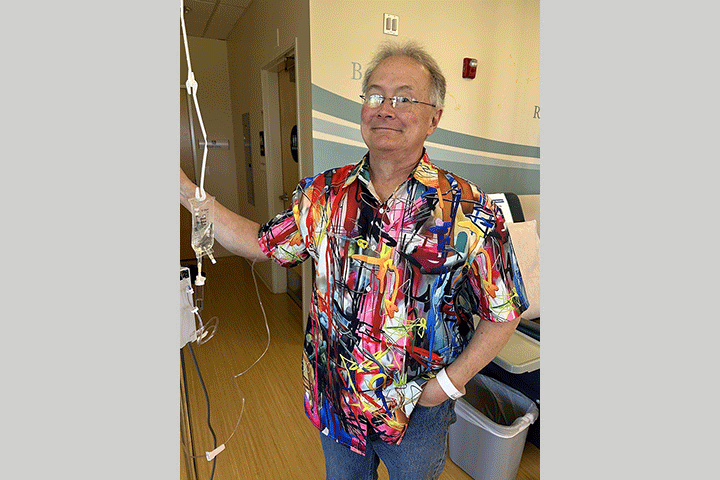Targeted Protein Degradation to Treat Advanced Solid Tumors

Researchers are testing a new approach to treating a type of lymphoma and advanced solid tumors, including pancreatic cancer.
Targeted protein degradation takes advantage of certain biological pathways to degrade selected proteins, whose activities affect gene expression and the growth of cancerous cells, ultimately leading to cell death. One way to activate targeted protein degradation is by linking a protein of interest with special proteins that induce the degradation of the protein of interest. This study is testing a small molecule that targets BRD4, a member of the BET (human bromodomain and extra-terminal) family of proteins considered a master regulator of oncogenes.
This phase I/II dose escalation and expansion study is intended to evaluate the molecule’s safety, tolerability, and effectiveness in patients with advanced solid tumors.
What is Protein Degradation?
RNK05047 is a “chaperone-mediated” protein degrader, which means that the drug chemically binds to the target protein (in this case BRD4), as well as to a “chaperone” protein. In this case, the chaperone protein is heat shock protein 90 (Hsp90), which among many functions regulates proteins by tagging them for degradation.
Once linked to the drug and Hsp90, BRD4—the target protein—gets degraded and loses its ability to regulate the expression of genes. This can lead to the downregulation of certain growth-promoting (onco)genes and in turn inhibit the proliferation of BRD4-overexpressing tumor cells, including pancreatic cancer cells. Since Hsp90 is highly activated in tumor tissues compared with normal tissues, RNK05047 can selectively target BRD4 proteins of tumor cells and hence reduce damage to healthy cells.
How the Trial Works
In the first part of the study, participants receive the new drug intravenously in a four-week cycle to determine a recommended dose of the drug for the next phase of testing. Once the recommended dose is established, additional patients will be enrolled to receive the established dose for the second part of the study. In this phase, clinicians will be measuring any adverse effects of the medication, as well as response rates, disease control, and progression-free survival for up to a year.
The study is open to those with locally advanced or metastatic solid tumors that have not responded to treatment or are intolerant of all available standard-of-care therapies for advanced disease.
We encourage you to consult your physicians for clinical trials that may be right for you. The website ClinicalTrials.gov provides more details about this trial as well as many others. You can visit the Let’s Win Trial Finder for a list of all active pancreatic cancer clinical trials.






